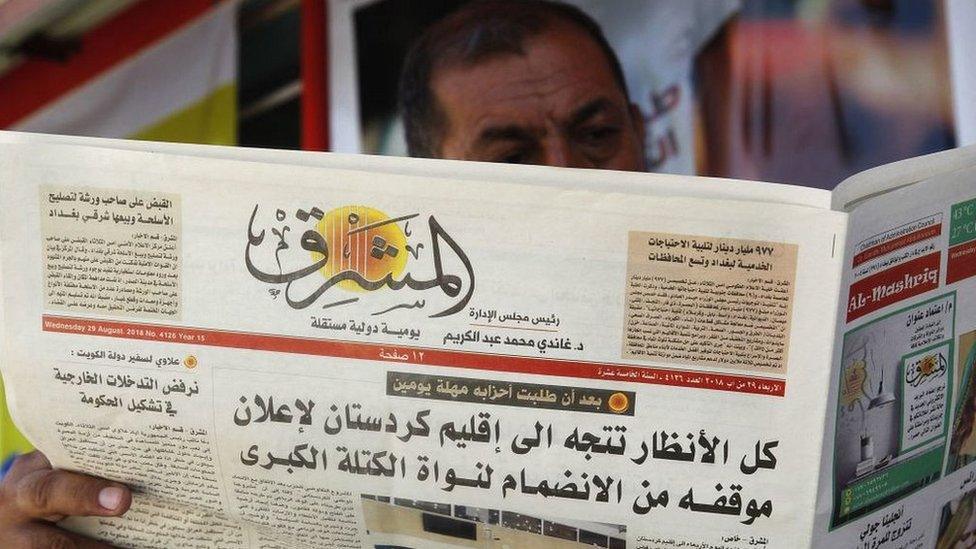Iraq media guide
- Published
This page is no longer being updated. It was last updated on 24 February 2023

Many media outlets are controlled by groups with a political or religious agenda
There are hundreds of publications and scores of radio and TV stations. But political and security crises have resulted in an increasingly fractured media scene.
Television is the main medium for news. Many media outlets have political or religious affiliations. For private media, advertising revenues seldom provide a reliable income.
The Iraqi Media Network (IMN) is a government holding company for outlets including Al-Iraqiya TV and Republic of Iraq Radio.
The autonomous Kurdistan region has its own established media.
Freedom of expression is protected by the constitution. But Reporters Without Borders says amid terrorism, political instability and protests, journalists face threats from all sides.
Foreign broadcasters targeting Iraqi audiences include the BBC, Paris-based Monte Carlo Doualiya radio, and US-backed Al-Hurra TV, Radio Sawa and Radio Free Iraq. Many of them are available via local relays. BBC World Service radio is on the air in Baghdad (89, 96.9 FM) and Basra (88, 90 FM).
Almost all homes have a satellite dish and there are dozens of Iraq-focused satellite TV networks.
Iraq's internet development lags somewhat behind that in other Arab states. There were 31 million users by July 2022, comprising 74% of the population (Internetworldstats.com). The most popular social media platforms are Facebook and WhatsApp.
Press
Al-Sabah, external - published by state-run Iraqi Media Network
Al-Zaman, external - private London-based daily
Al-Mada, external - Baghdad, private daily
Al-Mashriq, external - Baghdad, private daily
Television
Al-Iraqiya, external - state-run
Al-Sharqiya, external - private, based in Dubai, satellite and terrestrial
Al-Sumaria, external - private, based in Beirut, satellite and terrestrial
Kurdistan TV, external - operated by Kurdistan Democratic Party (KDP) from the autonomous Kurdistan region in northern Iraq
KurdSat, external - operated by Patriotic Union of Kurdistan (PUK) from the autonomous Kurdistan region in northern Iraq
Radio
Republic of Iraq Radio, external - state-run
Voice of Iraq, external - private, Baghdad
Sumer FM, external - affilate of Al-Sumaria TV
News agency/internet
National Iraqi News Agency (Nina), external - private, English-language pages
Iraqi News, external - news site, in English
Shafaq News, external - pro-Kurdish news site, pages in English